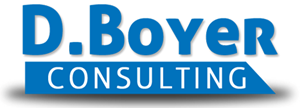Business is mostly conducted via email or phone communications.
Office hours 10:00 a.m. to 6:00 p.m, Mon. - Thurs., and 10:00 a.m. to 2:00 p.m. on Fridays.
SEND EMAIL INQUIRIES DIRECTLY TO:
Dawn.Boyer@me.com
Business is mostly conducted via email or phone communications.
Office hours 10:00 a.m. to 6:00 p.m, Mon. - Thurs., and 10:00 a.m. to 2:00 p.m. on Fridays.
SEND EMAIL INQUIRIES DIRECTLY TO:
Dawn.Boyer@me.com
Business is mostly conducted via email or phone communications.
Office hours 10:00 a.m. to 6:00 p.m, Mon. - Thurs., and 10:00 a.m. to 2:00 p.m. on Fridays.
SEND EMAIL INQUIRIES DIRECTLY TO:
Dawn.Boyer@me.com
The COVID Effect on the Job Market
June 10th, 2020 by Dawn Boyer
The COVID Effect on the Job Market.
As I write this blog article, the United States economy just moved past the 80th calendar day since the international pandemic (Corona-Virus 19) in which the quarantine sent everyone scurrying behind locked doors and face masks. Companies who relied mostly on technology were mostly insulated from business losses during the quarantine. Other companies moved to ‘curb-side’ service, online meetings (using Zoom, Adobe, and Google meeting cloud platforms). Some businesses (online shopping, health care, e-commerce) were able to still perform ‘as usual’ – especially if already providing services and products ‘virtually’ (employees moved from offices to homes to work via telecom technology. Those companies most impacted, e.g., non-essential retail, restaurants, hotels, travel, and entertainment are still struggling and many are facing bankruptcy. What does this mean for workers or those looking for new jobs and careers?
- Job seekers will have more competition for the job they would normally have been a ‘shoo-in’ pre-pandemic; in this economy, it’s now an employer’s market for hiring. Expect to be rejected more often as an applicant. The company may have a hiring freeze or slow-down, but there also may be jobs not advertised. Keep on posting your resume into the ATS on the recruiting system for the company(ies) you are targeting.
- Sharpen or add technology skills on the career resume for the job search. If you have the skill sets that enable to you to work from any location – job site, in the field, or from home, this will showcase your adaptability. Have you worked from home during the quarantine? Are you able to adjust to a personal work schedule and reliability? Mention that in your resume to showcase capabilities. Jobs ‘on-site’ in the past may be virtual go forward.
- Job seekers need to update and ensure their computer has with telecom capabilities – camera, speakers, and access to Internet for online meetings; and it’s important to realize the vital need for updating one’s resume and LinkedIn profile for recruiters to more easily find you online. Test your meeting software and equipment with friends and family member (virtual dinner party, anyone?).
- Review the field or industry – you may need to move to new careers. Job seekers need to target industries for ‘core business industries’ e.g., advertising, tech, delivery companies [packages, food], tax assistance, video communications, instruction and teaching platforms, essential businesses [pharmacies], healthcare services, and/or cleaning and sanitization [janitorial]. The companies to avoid targeting for job searches are those related to travel – hotels, airlines, sports, and automotive.
- Refresh your resume on the big boards (e.g., Monster, CareerBuilder, Indeed) – the older resumes float to the bottom of the resume pool; even if you add a dot or space, those ATS platforms categorize the resume as a ‘new’ (refreshed) resume.
- Be prepared for ‘more’ online virtual meetings, interviews, and panel discussions (hiring committees) versus driving to the location for the meeting (this is good – saves gas, and you can wear a nice shirt and jacket over your pajama bottoms).
- Be prepared to do more email and online networking – the face-to-face networking is ‘out’ with social distancing in place (likely for the next 6-18 months). Do continue to make phone calls to friend, peers, past co-workers and bosses to let them know you are available for work. Who do they know is looking to hire?
- Recruiters won’t be able to rely on ‘body language’ in virtual interviews, so it’s important for job candidates to look sharp, act like they are paying attention during the online cloud meetings, and to ensure the dog or cat won’t interrupt the meeting. The interview candidate may have to project more to demonstrate a positive attitude and don’t forget to clean up the area behind your computer to look like a more professional work environment.
- In the past, recruiters may have been able to make a job offer and have a candidate in the seat in two weeks. The pandemic has slowed the process down to ‘whenever it is safe to physically come to work.’ Expect delays in the hiring process – some college grads who were extended job offers aren’t able to work for their new employers until as late as July or August while the company struggles to determine health and safety protocols. There will be a slow-down in the decision-making. Companies may take a while before business picks up again to justify the hire and bringing the candidate onboard with a start date.
- Job seekers who have lost their jobs need to be aware the extended benefits from the Payroll Protection Act are for a small and finite period. If your employer laid you off and you refuse to come back to work – you will lose your unemployment benefits. Even if you get paid more in the PPA, it’s vital for you to get back to work so you have a job after the benefits run out.
- Do not lose hope. If you have a ‘side’ job, you may need ramp up the sales and services to bridge the financial gap between the last job and the new post-Covid career move.
Dawn Boyer, Ph.D., owner of D. Boyer Consulting – provides resume writing, editing, and publishing (print-on-demand) consulting. Reach her at: Dawn.Boyer@me.com or visit her website at www.dboyerconsulting.com.
Readers Comments
The COVID Effect on the Job Market
June 10th, 2020 by Dawn Boyer
The COVID Effect on the Job Market.
As I write this blog article, the United States economy just moved past the 80th calendar day since the international pandemic (Corona-Virus 19) in which the quarantine sent everyone scurrying behind locked doors and face masks. Companies who relied mostly on technology were mostly insulated from business losses during the quarantine. Other companies moved to ‘curb-side’ service, online meetings (using Zoom, Adobe, and Google meeting cloud platforms). Some businesses (online shopping, health care, e-commerce) were able to still perform ‘as usual’ – especially if already providing services and products ‘virtually’ (employees moved from offices to homes to work via telecom technology. Those companies most impacted, e.g., non-essential retail, restaurants, hotels, travel, and entertainment are still struggling and many are facing bankruptcy. What does this mean for workers or those looking for new jobs and careers?
- Job seekers will have more competition for the job they would normally have been a ‘shoo-in’ pre-pandemic; in this economy, it’s now an employer’s market for hiring. Expect to be rejected more often as an applicant. The company may have a hiring freeze or slow-down, but there also may be jobs not advertised. Keep on posting your resume into the ATS on the recruiting system for the company(ies) you are targeting.
- Sharpen or add technology skills on the career resume for the job search. If you have the skill sets that enable to you to work from any location – job site, in the field, or from home, this will showcase your adaptability. Have you worked from home during the quarantine? Are you able to adjust to a personal work schedule and reliability? Mention that in your resume to showcase capabilities. Jobs ‘on-site’ in the past may be virtual go forward.
- Job seekers need to update and ensure their computer has with telecom capabilities – camera, speakers, and access to Internet for online meetings; and it’s important to realize the vital need for updating one’s resume and LinkedIn profile for recruiters to more easily find you online. Test your meeting software and equipment with friends and family member (virtual dinner party, anyone?).
- Review the field or industry – you may need to move to new careers. Job seekers need to target industries for ‘core business industries’ e.g., advertising, tech, delivery companies [packages, food], tax assistance, video communications, instruction and teaching platforms, essential businesses [pharmacies], healthcare services, and/or cleaning and sanitization [janitorial]. The companies to avoid targeting for job searches are those related to travel – hotels, airlines, sports, and automotive.
- Refresh your resume on the big boards (e.g., Monster, CareerBuilder, Indeed) – the older resumes float to the bottom of the resume pool; even if you add a dot or space, those ATS platforms categorize the resume as a ‘new’ (refreshed) resume.
- Be prepared for ‘more’ online virtual meetings, interviews, and panel discussions (hiring committees) versus driving to the location for the meeting (this is good – saves gas, and you can wear a nice shirt and jacket over your pajama bottoms).
- Be prepared to do more email and online networking – the face-to-face networking is ‘out’ with social distancing in place (likely for the next 6-18 months). Do continue to make phone calls to friend, peers, past co-workers and bosses to let them know you are available for work. Who do they know is looking to hire?
- Recruiters won’t be able to rely on ‘body language’ in virtual interviews, so it’s important for job candidates to look sharp, act like they are paying attention during the online cloud meetings, and to ensure the dog or cat won’t interrupt the meeting. The interview candidate may have to project more to demonstrate a positive attitude and don’t forget to clean up the area behind your computer to look like a more professional work environment.
- In the past, recruiters may have been able to make a job offer and have a candidate in the seat in two weeks. The pandemic has slowed the process down to ‘whenever it is safe to physically come to work.’ Expect delays in the hiring process – some college grads who were extended job offers aren’t able to work for their new employers until as late as July or August while the company struggles to determine health and safety protocols. There will be a slow-down in the decision-making. Companies may take a while before business picks up again to justify the hire and bringing the candidate onboard with a start date.
- Job seekers who have lost their jobs need to be aware the extended benefits from the Payroll Protection Act are for a small and finite period. If your employer laid you off and you refuse to come back to work – you will lose your unemployment benefits. Even if you get paid more in the PPA, it’s vital for you to get back to work so you have a job after the benefits run out.
- Do not lose hope. If you have a ‘side’ job, you may need ramp up the sales and services to bridge the financial gap between the last job and the new post-Covid career move.
Dawn Boyer, Ph.D., owner of D. Boyer Consulting – provides resume writing, editing, and publishing (print-on-demand) consulting. Reach her at: Dawn.Boyer@me.com or visit her website at www.dboyerconsulting.com.













